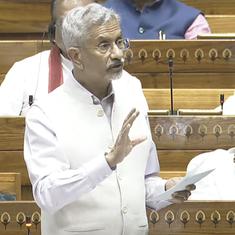- The poll promise of paying women a certain amount of money every month is politics-as-usual in Tamil Nadu, infantilising citizens, especially women, without taking on the responsibility of meeting their demands, writes V Geetha in Indian Express.
- The new Information Technology Rules are a blatant measure of government regulation of the news media sought to be passed off as self-regulation. Smaller or medium-sized independent digital news and current affairs portals, which are for the most part struggling to stay afloat irrespective of whether they are newer startups or have been around for a few years, will be the ones hardest hit, says Sashi Kumar in The Hindu.
- As accusations and counter-accusations fly back and forth after the Meghan and Harry interview, what’s become clear again is that misogyny and racism are inextricably linked to British Empire, and that the media is complicit, argues Sumana Kasturi in The Wire.
- Disaggregated data contradicts the rosy picture that national accounts paint of our economic performance. It is premature to conclude that a recovery is underway, as the GDP rise in the third quarter of 2020-’21 was on a very low base. Also, other datasets reveal that distress remains widespread, writes Himanshu in Mint.
- When cases appear more political than criminal, courts should grant bail rather than split hairs over facts at the pre-trial stage, says MR Shamshad in The Leaflet.
- Facebook’s Artificial Intelligence algorithms gave it an insatiable habit for lies and hate speech. Now the man who built them can’t fix the problem, reports Karen Hao in Technology Review.
- When I try to explain my obsessive-compulsive disorder to people, they don’t understand the fears and anxieties that drive these compulsions or what the repeated actions are meant to accomplish. People with OCD are often depicted as Type A clean freaks. The reality is much worse, writes Lisha Washington-Hill in The Walrus.
- In competing with the BJP in the game of nationalism, Delhi’s Aam Aadmi Partyis legitimising majoritarian politics. By presenting a “deshbhakti budget,” the AAP government in Delhi has shown that it would go to any extent to appease the majoritarian sentiment. argues Apoorvanand in Indian Express.
- A massive round of layoffs at the Huffington Post confirms that the media industry stands at the edge of a precipice. The only way it can shield itself from the whims of sadistic media baron owners who care nothing for journalism is by looking beyond capitalist ownership, argues Luke Savage in Jacobin.
- The cancellation of Gram Sabha meetings thrice raises serious concerns about the Tamil Nadu government’s attitude towards ensuring democratic decentralisation in the state, says M Gurusaravanan in The News Minute.
Weekend Fix: Aam Aadmi Party’s legitimisation of majoritarian politics and nine other reads
Ten must-read pieces this Sunday.










